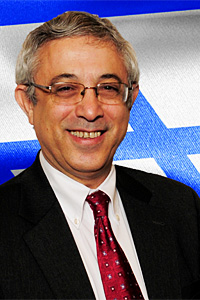Seventy-two years ago, a momentous historical event was achieved when the State of Israel was established in the ancestral homeland of the Jewish people. In normal times, we would now be celebrating in the streets and parks, picnicking and enjoying the wonderful spring weather outdoors. But, like most countries, because of the Covid-19 pandemic, Israelis are commemorating their independence day indoors, under strict regulations.
Nevertheless, the current atmosphere and the need to deal with situations of urgency and difficulty are not new to Israelis. Since its establishment in 1948, Israel has faced significant challenges in almost every aspect, ranging from a scarcity of natural resources to existential security threats. Despite the difficulties, and perhaps thanks to these challenges, Israelis have been forced to become self-sufficient and develop by themselves the means to overcome hardships.
One of the key factors behind the success of this small and young country has been innovative thinking. Israelis tend to claim that necessity is not only the mother of invention, but also the mother of innovation. Out of necessity, Israelis have created a pioneering high-tech market, strongly characterised by innovation. The Israeli government has for many years prioritised and funded Research & Development in the ICT sector, and hence created robust innovation capabilities and a friendly ecosystem for start-up companies.
As all eyes around the world are now focused on potential medical breakthroughs to battle the Covid-19 pandemic, Israel, similarly, is trying to utilise the smartest brains to develop effective solutions. Many of our research institutions and startups have shifted from their normal routines to a new domain of innovation -- trying to develop a Covid-19 vaccine, or preventive medications, apps, and other public health features that might save lives.
Several of these innovations and inventions have already been launched and are in use, ranging from hygiene micro-stations, test kits and medical teleconsultations to ad-hoc ventilators and more. Some companies are already active in Thailand, such as Tytocare, which has developed a portable medical kit that reduces physical contact by enabling patients to receive an online virus diagnosis from home. This kit is already in use by several hospitals in Thailand. Another example open for use in Thailand is AmboVent, an innovative ventilator, made up of common equipment that can be built anywhere. The blueprint for this ventilator is published in open source, and can be duplicated around the world.
As the entire world looks for an "exit strategy" from country lockdowns, Israel is also sharing three main tools which have proved vital in its ability to curb the spread of Covid-19: The first is a BI (Business Intelligence) system which allows the Israeli Ministry of Health to monitor contagion links in the population, and suggest focused steps to mitigate the spread of the pandemic in specific areas. The second ("Hamagen", which means "Shield" in Hebrew) is an app that allows the identification of contacts between diagnosed patients and people who came into contact with them in the 14 days prior to diagnosis. This app is also based upon open source code and has a unique process of data and personal information security. The third tool, developed by the Weizmann Institute, predicts Covid-19 outbreak centres, based upon algorithms monitoring medical information provided by local communities.
These innovative systems are pivotal to finalising Israel's exit strategy. We hope that by sharing these tools with other countries, we will be able to assist not only Israeli society, but also others around the world. Israel, like Thailand, is a society with a strong sense of solidarity. We all need, perhaps now more than ever, such solidarity and human compassion amid these trying times.
Meir Shlomo, PhD, is the ambassador of Israel to Thailand.
